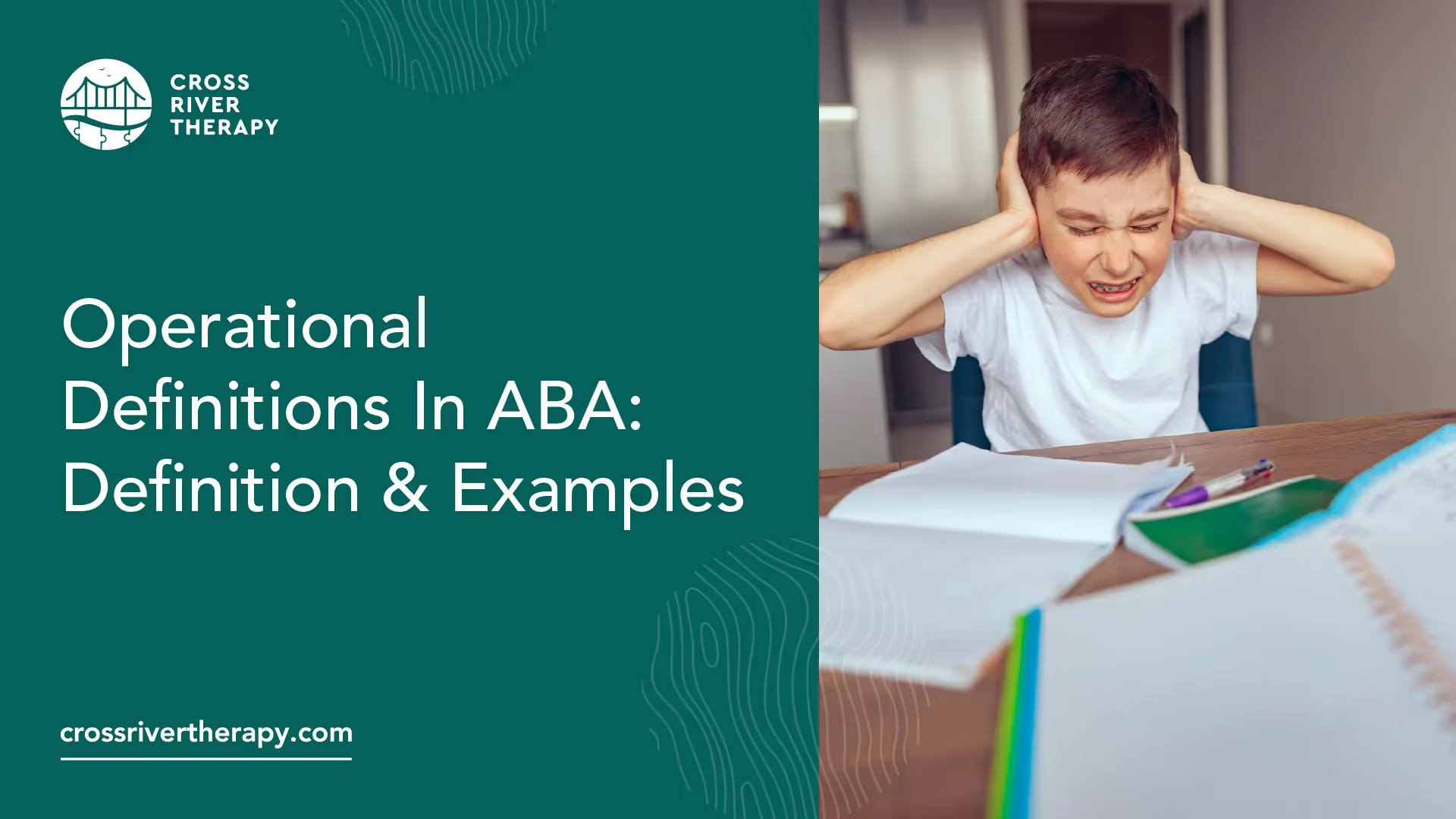Operational Definitions In ABA: Definition & Examples
In ABA therapy, we use operational definitions to define behavior. An operational definition describes behavior so that it is observable and measurable.

What are Operational Definitions?
In ABA therapy, we use operational definitions to define behavior. An operational definition describes behavior so that it is observable and measurable.
Operation definitions are a gauge. Their need is important when people collect different sorts of data from others. It's very important when a choice is made regarding if something's wrong or right, or when an evaluation is done visually.
As an example, the data that's gathered will have mistakes if the people doing the checks have varied opinions of what consists of poor results near the tail end of a manufacturing line producing glasses.
Defective glasses could get through while good pairs wouldn't. This is similar to when things like invoices are looked over for mistakes. If there's anything found to be erroneous, the collection of data would be pointless and no meaning has been assigned to the error in the first place.
When data is collected by someone, all people within the system that is gathered should have a similar understanding to the point where it's all compiled in the same manner. As such, operational definitions must be created before the gathering of the data commences.
When are Operational Definitions Used?
For behavior to be fundamentally understood, it must be properly defined. In Applied Behavior Analysis, also called ABA, there are operational definitions used to assign meaning to behavior.
An operational definition is a description of behavior, making it easy for people to observe and gauge. It must be transcribed so that people who read the meaning will quickly understand what's easy to tell if the behavior is happening or not. There are both examples and non-examples of this.
When operational definitions are created, a therapist will shy away from relying on language that forms conclusions or makes judgments. Staying away from such language that talks about what children feel when they interact with the behavior are to always be avoided. Only things that the observer can see should be detailed.
Assigning meaning to behavior at this level lowers misunderstanding and guarantees a more precise collection of data. This is particularly essential for several people to be gathering behavioral data.
Examples of Operational Definitions
An example of an operational definition is when a man touches someone else with their body by applying a significant amount of pressure to make sounds others can hear nearby. If the force is sufficient enough, it could also leave a small mark on the other individual's skin. This is as it relates to aggression.
Other aggressive examples include the following:
- Biting someone hard enough to make teeth marks on the skin
- Using the hands, either open or closed fist, to strike someone else
- Kicking with the legs or feet to physically touch someone close
- Throwing objects with their hands so that it touches the person they wish for the item to touch
There are self-harming examples of this also, such as a child hitting, scratching, or pinching themselves. Banging the head on another surface and biting oneself to create physical marks and audible noises. All of these instances could be common for children that are autistic, though therapy has been shown to reduce these instances.
Some of the reactions spring forth through children not knowing how to properly convey a message they wish to get out. Operational definitions are common in both verbal and non-verbal children.
Here are some non-compliance examples of operational definitions:
- A child moving items off a table when they're given the order to carry out
- A girl declining to finish the transition when they're told to do so by dropping to the floor
- Children refusing to move themselves to complete a task or follow directions close to when the command is stated



